"No good deed goes unpunished"
Wednesday, 03.09.2014.
10:32

"No good deed goes unpunished"
Having in mind that you deal with humanitarian activities very seriously, while in major cases, humanitarian work serves to conceal something altogether different, how hard is it for you to be involved in this and to organize numerous humanitarian campaigns under those conditions?“No good deed goes unpunished“. (Those words are being attributed to Clare Boothe Luce, editor, dramatist and representative of U.S. Congress). Since the establishment of B92, we deal with humanitarian, social, political activism and we have an extensive experience with being wrongly perceived, with being maliciously interpreted, and with the attempts of being discredited, and assaults on our credibility. We can always count on this, as well as to be “punished” in various ways for dealing with something very successfully and in a transparent way, for the welfare of the citizens and the community in general.
We have long time ago strongly professionalized the work in this field. B92 Fund as a strong internal code, while the employees and the activists are strongly devoted to the principles that include honesty, transparency, and high level devotion to the ideas and projects of B92 Fund. Along with successful campaigns, this is most efficient defense.
The biggest problem we face with is unfavorable environment and bad treatment of the philanthropic and charity work. We lack favorable legal framework and developed practice of the foundations and similar organizations. There are no practical benefits, incentives, encouragement, both for donors and for philanthropists. There are no established standards that will represent companies and businessmen that have made CSR activities part of their core business as more qualitative, more valuable organizations that is good to cooperate with, than with those that don’t care for CSR, but they are only interested in the profit that serves for obtaining yachts and other luxurious habits. I am personally under 24/7 police protection due to social responsibility that is being reflected in exposing phenomena that lead to decreasing the level of living of the citizens. I believe that apart from solving the problems of the citizens and institutions, we have to speak about the problems that lead to the fact that some groups of people are in a very difficult situation. By dealing with this compatible part of humanitarian and social engagement, I pay high price in the professional and private life.
To what extent are our influential and wealthy people willing to help others?
It seems to me that this hasn’t significantly changed since the Roman Empire. Marcus Aurelius had noticed: “Some people, when they do someone a favor, are always looking to call it in. And some aren’t, but they’re still aware of it — still regard it as a debt. But others don’t even do that. They’re like a vine that produces grapes without looking for anything in return... When they help someone… they just continue their way… This is how we should be“.
Very few people are noble “per se“, without any interest or inclination towards trend. There are few of them that authentically accepted CSR standards, by integrating them into the operations of their companies that work on expanding the culture of charity, within the company, and to community.
There is larger number of those who accepted CSR standards as part of corporate business, but they had wrongfully integrated them within organization, placing them into marketing department. So, there are those who deal with social responsibility only for the marketing needs, to improve their position or to get more favorable results in public relations field. It is not rare that due to some PR failure, they take part in some humanitarian campaign in order to make things “straight”. There are those who engage in humanitarian campaigns for business purposes – I give you donation, you give me job.
It happens more often that even advertising and PR agencies advise their clients to take part in such campaigns or to launch their own, as a part of strategy of communicating with public and clients.
Taking part in the campaigns of B92 Fund largely depends on the nature of the campaign, on the quality of the campaign and the situation in the society. We tend to encompass the broadest strata: we find it extremely important to engage the citizens, individuals, regardless of the usually symbolic sums of money they donate, as although with a million of such participants we manage to collect significant assistance, even more significant is their huge positive energy that pushes all others to act. We also have a few influential and wealthy donors who always contact us and want to participate in every campaign, without exception, as they have a need to be useful and humane. They offer their support without any “bad intentions” and this is very important foundation for the assessment of the success of the campaigns we plan and implement. They are not interested in publicity, or any kind of gratitude. They engage in such campaigns even outside of B92 Fund’s activities. However, I believe that we had exhausted ourselves when it comes to the possibility of the growing number of those that took this as a habit, or this is their regular activity, and that is why we need to make a new breakthrough. I see this breakthrough in the favorable, stimulating legal acts, in tax exemption, or even in tax incentives on the amounts that are being given away in humanitarian, social and educational purposes.
Which humanitarian fund are you most proud of... and where did you achieve the greatest success, i. e. in which campaign did you collect the highest funds?
I am especially proud of the overall performance of B92 Fund and the people that make it unique with their devotion and philanthropy. Namely, with their engagement, they made fund most prestigious institution of this kind in Serbia, but also a role model that other countries tend to implement in their own countries, with the aim of making society better and to diminish the gap between the wealthiest and the poorest, and in order to build the bridge of solidaritity. I am confident that B92 Fund had contributed to the growing number of individuals and institutions in our country which regard the principle of giving as one of the key life and business principles. Therefore, the number of people that got assistance also grew.
Battle for the Babies – Maternity Wards is so far the most successful campaign that gathered 1.3 million of participants. More than EUR 3.5 million was collected, and from this money, medical equipment was acquired. Every maternity ward in Serbia and every children hospital got necessary equipment, first for the prematurely born babies, and then those that were urgently needed, and vital for babies’ survival. Apart from providing e quipment for all maternity wards with necessary incubators, we have provided full equipment for ten maternity wards so far. Only in the first year, in the Institute for Neonatology, death rate of the prematurely born babies weighing under 1000gr had decreased for twenty percents. Surely those results are now even better and more noticeable. This campaign had taken roots in Bosnia-Herzegovina where we provided half the needs for incubators on the territory of the whole Bosnia, while the campaign also served as inspiration for a similar campaign conducted in Croatia. Campaign had got numerous local and international recognitions. It is important to mention that the campaign still lasts and that this month, we had made agreement with the company Nordeus to donate funds that will halp solve the problems of at least three additional maternity wards in different parts of Serbia.
For the success of the campaigns, creative campaigns designed pro bono by the agency Satchi & Satchi are also important, as well as other agency’s groups such as Publicis led by Misha Lukic, who is also fully devoted to the CSR activities. Thanks to those devotion and the campaigns it had implemented, this is the most renowned agency in the region. This is yet another indicator that when socially responsible engagement is the core of business of any company, it can accomplish great success and credibility, giving an extra value to the company.
When it comes to the results of B92 Fund, it is possible to present them in the following way:
- 1 digital mobile mammography unit = over 55.000 check-ups and over 1.000 saved lifes
- 9 Free Zones (Festival of engaged film) = over 125.000 viewers
- 1 bus for blood transfusion = over 10.000 liters of donated blood
- 1 regeneration = first regional web series with over 500.000 viewers
- 5 safe houses = over 3.000 protected from violence
- 1 Food for All = over 60 soup kitchens reopened, constant aid to the soup kitchens based in Kosovo
- 1 Cultural Center Rex = over 4.000 events, with over 500.000 visitors, for 20 years of existence
- 1 Battle for the Babies = 207 incubators for over 10.000 prematurely born babies every year
- 1 Center for secure internet = over 20.000 informed children, video spots
- 1 B92 Fund = 10th anniversary since its establishment

The motive for this statement was the reaction on our series pertaining to wasting money on Kosovo, relentless plunder of state budget resources, which caused chase on “Insider” and B92, but also a range of events, such as aggressive announcements of extreme right-wing activists, making of lists of inappropriate persons according to ethnic, political, cultural criteria. Nowadays, we could say that Parliamentary Council for investigating spending of budget funds on Kosovo came to the same conclusions as Insider, but right-wing organizations still have quite large maneuvering space on a political scene. Namely, a real war is waged on a political scene, through tabloids that belong to the diverse influential groups, either political or economic-tycoon, and in waging this war, all ethical, moral, personal integrity is being abused, while other criminal acts are also being carried out on a daily basis.
Of course, there are indications that certain phenomena from the nineties will be exposed, such as political killings or certan aspects of the initial accumulation of capital of divers tycoons should be revealed and sanctioned in cases backed with appropriate evidence. It is very important to deal with facing with our recent past in a concrete way, in order to prevent the events from the nineties to happen again.
It seems that that this will be the toughest year so far? Is this a desperate attempt of the present authorities to justify former failures, while three years ago, former authorities had convinced us that we will get out of the crisis till the end of 2014. What do you think about this?
It can be tougher and worse always. I don’t know whether this year will be the thouhgest, but it is already very hard. Namely, we have almost lost this year already, as constituting of the new government will last till summer. Then, we only have autumn to prepare for the next year. It will not be lost altogether, if there is determination to speed up reforms, to appoint best people to lead most important segments of economy, if experienced managers are being hired to the major positions, and if we take care in the process of the social policy in a sustainable way. Any kind of calculation that includes populism will push as further away from economic solutions. On a political level, regardless of the fact who will be rulling the country, and with what percentage it will win the elections, broad coalition must be made regarding necessary steps. I would prefer if future government invite to round table both opposition and major non-governmental organizations, representatives of unions and leading scientific institutions. They should all act together and design necessary reform initiatives, in order to reach broader consensus, but also in order for the citizens to be better informed on what expects them and why it is absolutely necessary. It is important that we act in advance on the possible explosion of the wrath of the poor, desperate, helpless… They should be shown that there is a way for their position to improve, and the acts should support this.
Can you predict political and public Serbia after the elections or till the end of this year?
I am not a prophet, and it is very unrewarding to predict anything in Serbia. It is obvious that SNS will dominate political scene, primarily its leader, Aleksandar Vucic. It would be perfect if they could find strength to make roundtable that I mentioned before, on making a serious attempt of reaching consensus regarding resolving most important issues, so that this could be eliminated from everyday political struggle. Both the ruling authorities and opposition had obligation towards citizens, and not towards themselves, and they have to do everything that hadn’t been done so far to prevent destitution, poverty, despair, in order to make foundation for the development of the country that will secure equality of the citizens, strong solidarity, modernization of economy...
Probable future chairman of the European Commission Jean-Claude Juncker said: “We all know what should be done, we don’t know how to get elected again afterwards.“
SNS, along with other political elite in Serbia, has to break from this matrix that prevents from happening all that has to be done, as they will not be reelected. So what? The world will not fall apart if they lose power, while the people experience more prosperous future. Nothing else matters.
There are dozens of issues that were not processed and it is very hard to do more with small journalistic team and limited budget. Insider has become a kind of public service project and I believe that serious funds should develop systematic help to the investigative journalism in general, and to Insider, in particular, in order to share this experience region wide, and in order to share it with colleagues. There are less and less genuine investigative journalists that can pass on their know-how to others.
Moreover, it would be interesting to investigate what happened with the cases that Insider revealed – why they are not processed? Why some people got abolition? Why the authorities hadn’t changed their attitude accordingly? Those would be real reforms. Otherwise, all that Insider had achieved, at the expense of Brankica Stankovic’s safety, and mine also, would remain useless. The same will happen if we don’t learn from the lessons pertaining to investigations of 24 privatization processes that commenced by Verica Barac. Smart people learn on their mistakes, and incompetent and stupid always repeat the same mistakes.
How much the lack of responsibility in the media affects current image and life in Serbia?
I think that it is all about concept. The notion of responsibility simply does not exist in large number of current media outlets. First, there are media with the concept of certain political group. Then, we have those with tycoon’s concept – with a mixture of economic and political motives. Then, there are media that has problems with economic survival on the market, that have to sacrifice high quality journalism because of that.
In these situations, responsibility is not a must that needs to be at the core of every public activity.
I believe that this is the result of the overall relations in the society, degradation on all levels, but this should not be an excuse for irresponsible attitude. It is most frightening that the values on the elementary level of humanity are not being observed, as outside of our profession, we still have certain obligations – as human beings.
Although I am not a believer, we can witness the degradation of the respect of the values on this level, too.
At least six God’s commandments can be implemented on social communication (You shall shun from worshiping idols, You shall not take the name of the Lord your God in vain, you shall not curse; you shall honor the elder and tradition; you shall shun from violence and pornography; you shall shun from corruption and false statements; you shall act in solidarity with your fellow journalists). Moreover, the values of the Gospels can be comprised into five words: freedom, dignity, justice, peace, love (Love your beloved as yourself).
In the perception of the citizens, I believe that public health is the leader in disreputation.
We also have correspondence with journalistic code when it comes to the old medical values – engagement, sympathy, integrity, competence, investigative spirit, confidentiality, responsibility towards the consumers and the community.
So, when we look at the broader context of these crucial obligations in the present context, we can see general degradation of the profession and people compared to the elementary values. In this context, we need to consider the degradation in our profession. As this is broader trand, it would be harder to direct the process onto the right path, due to the fact that new platforms, new technologies, and new habits grow every day, moving away from the basic values as general degradation is happening even in the educational system where there is no capacity for knowledge formation in a way to make it universal, regardless of the new technologies and habits. It is highly important to establish conditions for the revival of the society mainly through enlightment processes, responsible, modern and capable authorities, but also through the strong participation of the non-governmental organizations, individual persons, companies, etc.

Every criticism matters, it should not be ignored, it should be used to improve ourselves, or at least to judge what we are. It is very important that we should be fair to ourselves, not to try to find alibi, not to cover our weaknesses, to convince ourselves that something is malicious, that it is all about someone trying to destroy us. Of course, this facing with our past is very hard, but it is crucial in every business, so that you stay firmly on the ground. B92 is nowadays different compared to what it was in the nineties. Many things had changed around us, so the nature of B92 had to change too. I would be much happier if we had managed to develop B92 as the best world media with original business model, but we hadn’t succeeded in doing so. I am not sure whether someone could have done that. I still consider possibilities of making such a media, that its core ownership structure is foundation, while media group serves for objective, original, innovative distribution of information, education and entertainment, and to be profitable in the same time, while the funds should be used by the foundation for further developing its mission. So, profit would have been invested into the mission, not into luxurious yachts and other kind of haughty habits.
What are your plans for the forthcoming period, when it comes to program and journalism in general, do you plan on strengthening your media?
It is very hard to talk about new plans when we experience constant downfall of the market. Only in five year period, advertising market was reduced more than double. This trand is an ongoing phenomenon. So, this is all about how to maintain the substance, capacity for production of credible news, high quality debates, demanding investigative programs, high quality entertainment shows. Our priority this year is financial, business stability that will provide making of the new model for the development of those values that B92 is renowned for. This year, we will mark 25th anniversary of Radio B92, and it will be good opportunity to remind ourselves of the core values that made B92 internationally famous and recognizable.
Do you consider tabloids a democratic legacy and if it is so, why?
Few years ago, according to the telling of our colleagues, we faced with rather interesting situation in Zagreb: there were two strong players on media scene with different but seemingly complementary styles. One had threatened public figures – you will not be present in the media, unless... And the other did the opposite – I will place you on the front cover and compromise you badly… All thought that it was fortunate that they hate each other, and then they got together and those were very scary moments.
As for us, when we speak about tabloids, as I had already mentioned, we speak about certain concepts, political concept and the concept of powerful centers, and rarely the concepts pertaining to the profit from printrun or ads in the newspapares. Political elite produces and tolerates such situation. Therefore we have no possibility to solve the problems generated by tabloids regularly, through judicial system or through self-regulation via media associations.
When you mention democratic legacy, you might think of the Voltaire’s or someone else’s saying: “I disapprove of what you say but I will defend to the death your right to say it“. This is about opinion and it is surely the basic postulate of democracy. However, we are not considering opinion as a problem, but shameless lies that are being presented without any consequences, we are talking about accusations, chase with political and economic motive, instead of journalistic. Even the tabloids must observe certan code of conduct, not to mention the code of law, the presumption of innocence, etc.
How much are you in for social networking, do you use social networks and do you think that hate speech is the easiest way to make someone popular?
When I established Opennet B92, the first providing center in Serbia during 1994 and 1995, I had primary motive to connect all those who left the country with us that stayed here. We were eager to build that kind of community that would help us not to feel abandoned, and that those who left could help us with their talents. We wanted to cherish this kind of bridge in order not to feel so badly the deficit of expert young cadres. We didn’t manage to do that back then, but we had managed to overcome ban from 1996 by using internet in an innovative way, and thus found ourselves on the covers of New York Times, Washington Post, and the essays of the Wired Magazine, and this case of ours was later studied in expert literature in a detail and was highly recommended.
B92 has, by developing its portal, developed all new platforms along: with VIP blog we had achieved great breakthrough, and this was practically the first organized example of civil journalism. Our web site is among the leading portals when it comes to the number of frequent visitors and influence, our Facebook page was liked by more than 250.000 visitors, twitter is used to the full extent... We try to achieve as friendly as possible attitude towards new technologies and habits, so we have special applications for mobile phones, so more than half of visitors follow us via mobile platforms.
We follow social networks very actively, trying to use it in generous and humanitarian purposes. Through B92 Fund, we have produced the first web feature series “Just Saying“ intended for a teenage population, as new generations don’t follow television in a classic way anymore, but via net or mobile phones.
I find hate speech very strenuous and I do not follow it. Unfortunately, once again, new platforms and technologies are used more for doing harm instead of doing good. However, it is up to us to try to find new models to stimulate people to use social networks for general and individual welfare.










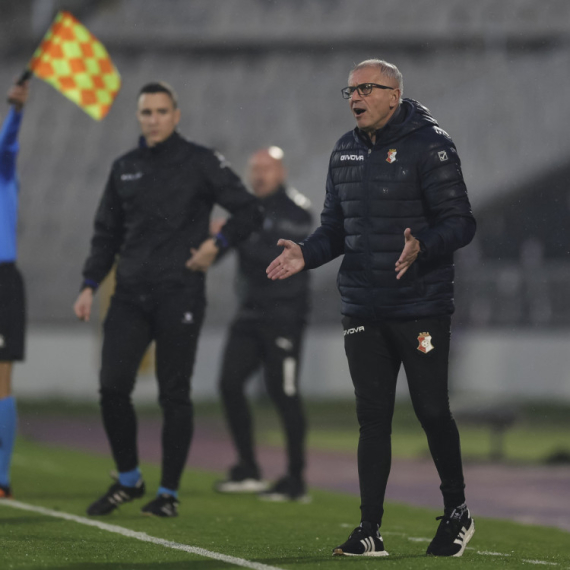


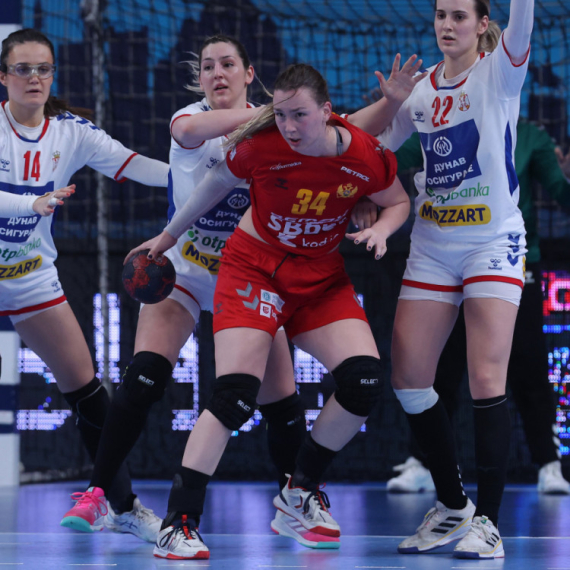
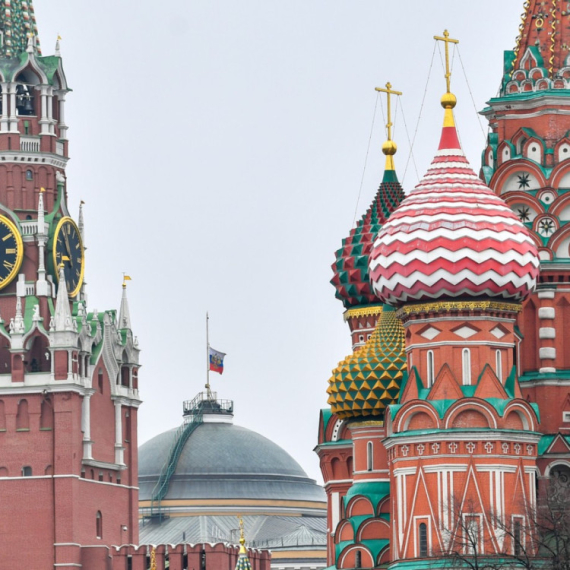

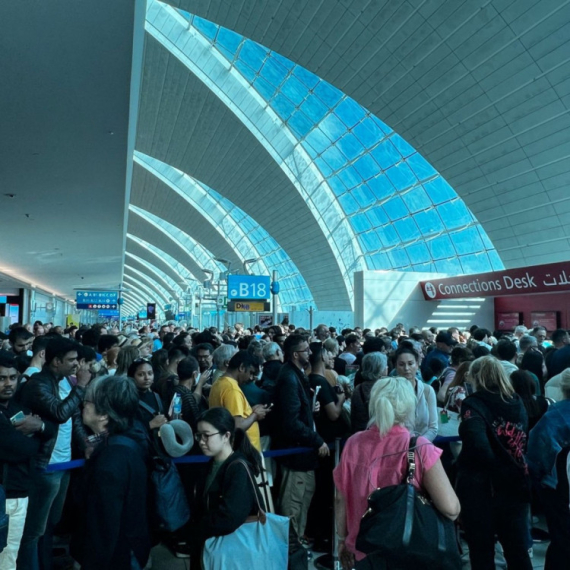






























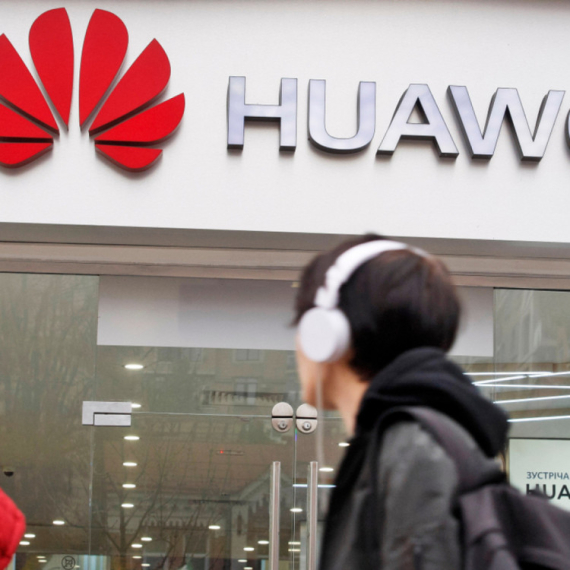







Komentari 0